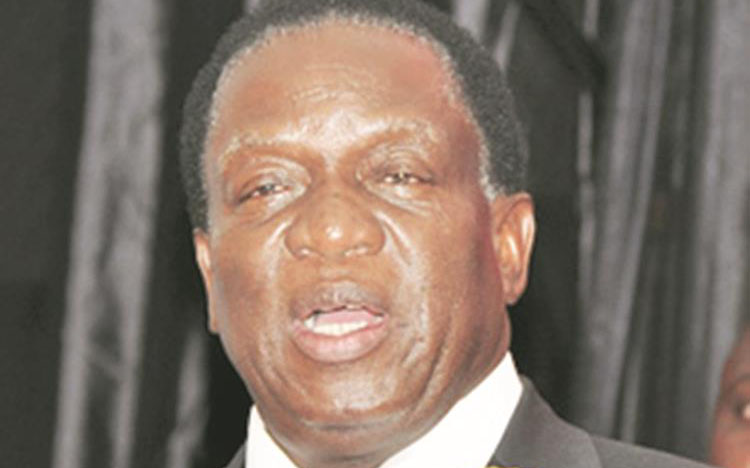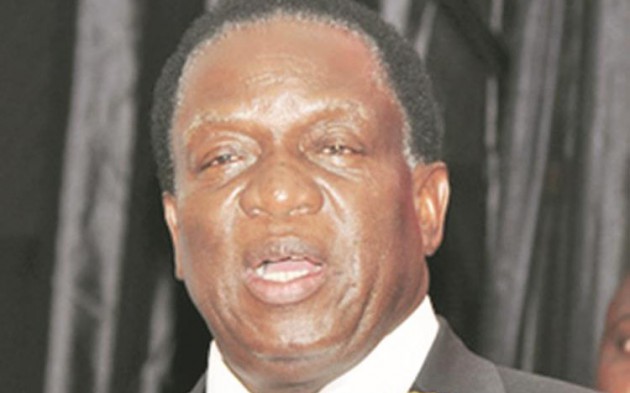Parly comes of age as Fifth Session beckons

Farirai Machivenyika Mr Speaker Sir
The Fourth Session of the Eighth Parliament ended two weeks ago with Parliament expected to return on September 12, when the Fifth Session will be officially opened.
This was an eventful session and this week, Mr Speaker, Sir, I just thought it appropriate to do a round of significant events that took place during the just ended session.
The highlight of this session Mr Speaker Sir, was the passing of the Constitutional Amendment Bill No. 1 after Zanu-PF used its two-thirds majority it garnered in the 2013 harmonised elections to amend the Constitution.
The highlight of the amendment was to change the provisions on the appointment of the Chief Justice, his or her deputy and the Judge President.
Under the old provisions the three positions were filled by the President from a list supplied by the Judicial Service Commission (JSC) following public interviews. Under the new provisions, the President will appoint the Chief Justice, his or deputy and the Judge President after consulting the JSC.
The amendments also subordinate Labour Court and Administrative Court judges to the judges of the High Court. Mr Speaker Sir, as expected, the opposition MDC-T vehemently opposed the amendments arguing that it was premature to amend the new Constitution.
Vice President Emmerson Mnangagwa (pictured), who steered debate on the amendments as the Minister responsible for Justice, Legal and Parliamentary Affairs, shot down the MDC-T objections saying Zanu-PF had the backing of the electorate given that it had the two-thirds majority required to amend the Constitution.
Despite the objections by the opposition the amendments went on to be passed by Parliament. On the conduct of public hearings, Mr Speaker Sir, some members of the public complained that they were not being given adequate time to study Bills so that they make informed submissions before the Bills are brought to Parliament for debate.
This was evident during the public hearings of the Land Commission Bill with some members of the public raising issues that were outside the remit of what Government wanted to achieve through promulgation of the new Act.
The Land Commission Bill seeks to operationalise the Land Commission but during the hearings some people raised issues to do with distribution of food and agricultural inputs clearly showing a lack of understanding of the purpose of the Bill.
Sadly, Mr Speaker Sir, this has happened in other hearings were people end up raising issues that are not covered by the topic under discussion.
Given that, Mr Speaker Sir, taxpayers’ money would have been used it is important that as we await the commencement of the new session Parliament takes cognisance of this fact to ensure that public hearings of Bills or any issue for that matter are publicised well in advance to ensure that we have an informed public.
One of the concerns by the public was that most public hearings ended up failing to achieve the desired targeted results as most people would be ignorant of the provisions of the Bill under discussion.
Mr Speaker Sir, the just ended session also showed signs that Parliament is becoming of age and can use its powers to hold the Executive to account. Vice President Phelekezela Mphoko, who is also the Minister responsible for National Healing, was forced to withdraw the National Peace and Reconciliation Commission Bill in 2016.
The Bill was withdrawn following its rejection by the Parliamentary Legal Committee and members of the public. The PLC had rejected the Bill on the grounds that it undermined the independence of the National Peace and Reconciliation Commission by conferring too much power on the parent ministry.
A revised version of the Bill was brought back to Parliament and is currently before the PLC. Still on powers of Parliament, Finance and Economic Development Minister Patrick Chinamasa was also forced to adjourn debate on the appointment of Industrial Development Corporation general manager Mr Mike Ndudzo as the new Auditor-General after parliamentarians from across the political divide objected to his appointment.
Members of Parliament argued that while Mr Ndudzo was qualified for the job he had overseen companies that had are struggling or had closed shop thereby questioning his management acumen.
Mr Ndudzo had been nominated to take over from Mrs Mildred Chiri, who has been credited with improving the operations of the Auditor-General’s Office and exposing corruption in parastatals, Government departments and other public enterprises. This is highly commendable, Mr Speaker Sir, because gone are the days when Parliament was there just to rubber stamp the Executive’s decisions.
With Government implementing a number of reforms to make the country competitive and attract investors, it is also imperative that the Legislature play its watchdog role without fear or favour.
So we hope when Minister Chinamasa brings back his new recommendation for the post he would have consulted widely so that we have a person who is credible in the eyes of the public given the job requires a person of unquestionable standing.
Still with Government’s efforts to improve the business environment in the country, a number of pieces of legislation were either passed or are at various stages of debate in Parliament.
The Bills that were passed during this session and were signed into law by the President include the Special Economic Zones Act, the Public Procurement and Disposal of Public Assets Act and the Movable Property Security Interests Act.
The SEZ Act is the flagship of the laws that were passed as it seeks to provide incentives to foreign investors through the setting up of the Special Economic Zones.
The SEZ Authority Board, chaired by former Reserve Bank of Zimbabwe governor Dr Gideon Gono, has since been appointed and has pledged to work towards making Zimbabwe an attractive investment destination. The other Bills that now await Presidential assent are the Constitution of Zimbabwe Amendment Bill No. 1 and the Land Commission Bill.
Several other Bills are still before Parliament at various stages of enactment. These include the Mines and Minerals Amendment Bill, which is set for its second reading in the National Assembly; the Estate Administrators Bill; ZEP-RE (Membership of Zimbabwe and Branch Office Agreement), Shop Licences Amendment Bill, Insolvency Bill, National Peace and Reconciliation Commission Amendment Bill, the Civil Aviation Amendment Bill and the Public Entities Corporate Governance Bill.
Mr Speaker Sir, as we wait for the Fifth Session of Parliament to be opened it is our hope that the Legislature continues to carry out its watchdog role without fear or favour for the benefit of the nation.










Comments